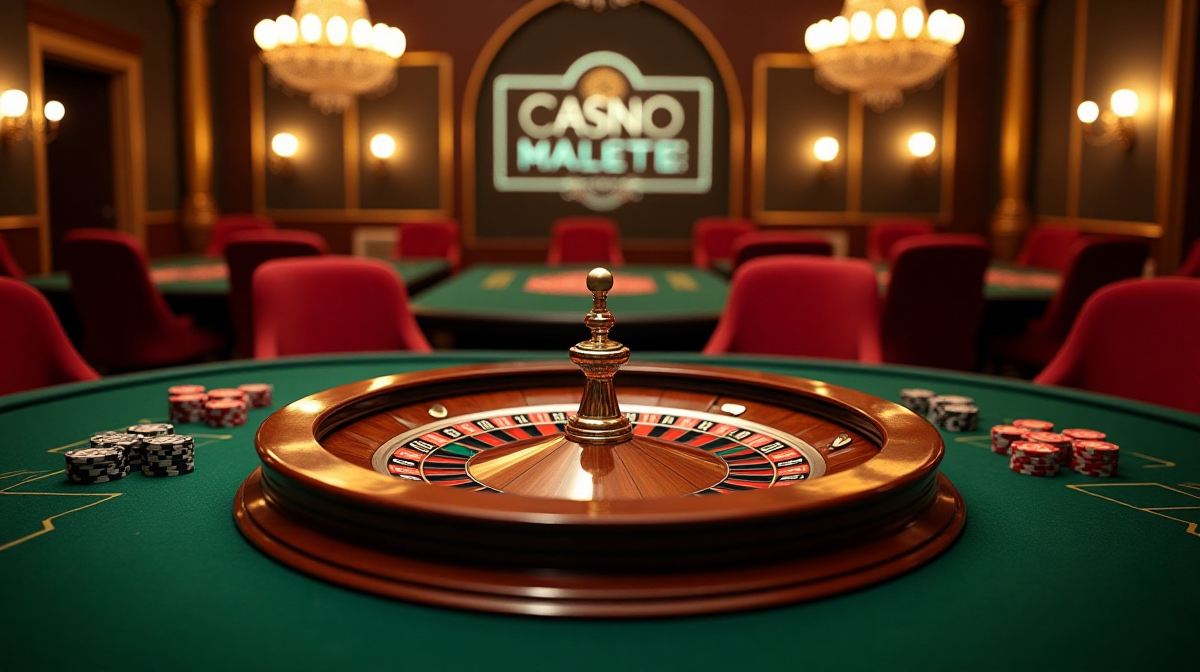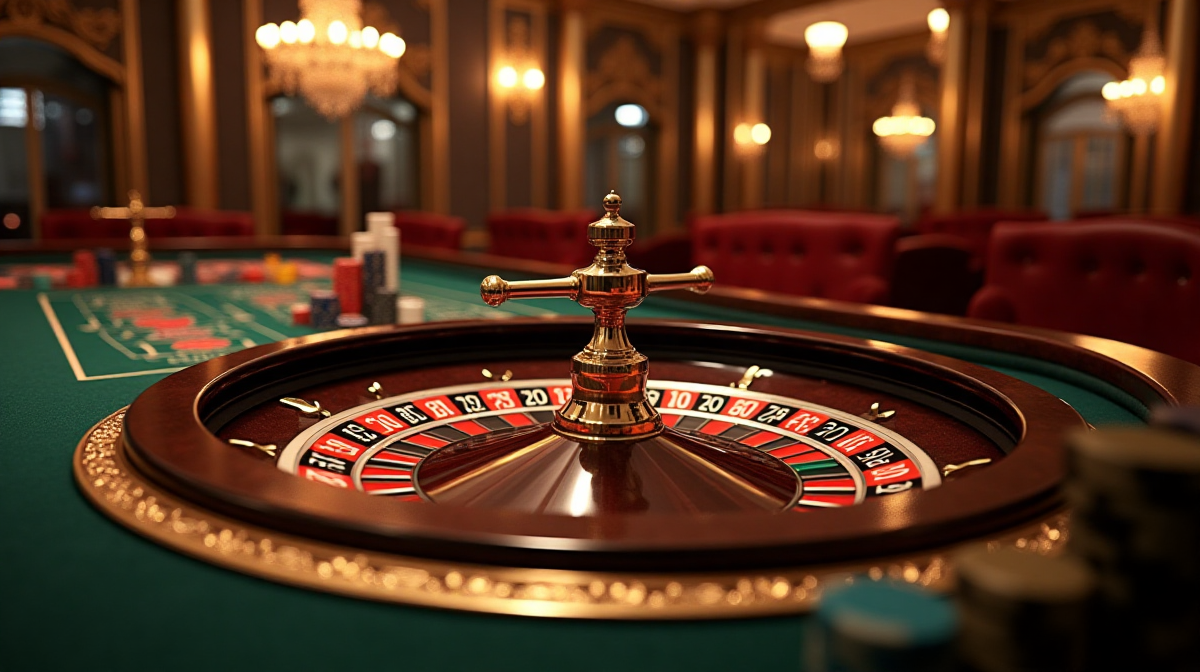Roulette Table: 5 Secrets Pros Know
The Allure of the Roulette Table: Beyond Luck
The roulette table, with its spinning wheel and array of betting options, has captivated gamblers for centuries. Often perceived as a game of pure chance, a closer look reveals that skillful players can elevate their game beyond simple luck. While the house always retains an edge, understanding the intricacies of the game, employing smart strategies, and maintaining discipline can significantly improve your odds and enjoyment. Many are drawn to the excitement, and some even explore options like a quick run 567 to test their luck.
Who are “Pros” in Roulette & What Do They Know?
When we talk about “pros” in roulette, we aren’t necessarily referring to individuals consistently winning fortunes. Instead, they are players who have dedicated time to understanding the game’s nuances, mastering bankroll management, and minimizing their losses. They understand the probabilities, the limitations of betting systems, and the importance of emotional control. They might even browse for a run 567 online betting login to participate in various games.
Setting Expectations: Roulette is Still Gambling
It’s crucial to acknowledge that roulette remains a game of chance. No strategy can guarantee consistent wins, and the house edge will always be present. The goal isn't to beat the casino in the long run, but to maximize your chances of winning in the short term, minimize losses, and enjoy the experience. Steering clear of scams such as a dubious buckshot roulette download is also paramount.
Understanding Roulette Wheel & Table Layout
European vs. American Roulette: Key Differences & House Edge
The first step towards becoming a more informed player is understanding the differences between European and American roulette. European roulette features a wheel with 37 numbers (0-36), while American roulette adds an extra ‘00’ slot, bringing the total to 38. This seemingly small difference significantly impacts the house edge. European roulette has a house edge of 2.7%, while American roulette’s is 5.26%. Always opt for European roulette when available.
Inside Bets vs. Outside Bets: Probability & Payouts Explained
Bets on the roulette table are broadly categorized into inside and outside bets. Inside bets are placed on specific numbers or small groups of numbers, offering higher payouts but lower probabilities of winning. Outside bets, such as red/black, odd/even, or high/low, cover larger sections of the wheel, resulting in lower payouts but higher winning probabilities. Understanding these trade-offs is vital for strategic betting.
The Sectors of the Roulette Wheel: Visualizing Potential Outcomes
The roulette wheel is divided into sectors, which can help you visualize potential outcomes. Recognizing these sectors and the numbers they contain allows you to make more informed betting decisions. For example, knowing the arrangement of numbers can help you understand the coverage of certain bets.
Common Roulette Terminology: A Glossary for Beginners
Familiarize yourself with common roulette terminology such as “straight up” (betting on a single number), “split” (betting on two adjacent numbers), “street” (betting on a row of three numbers), and “corner” (betting on four numbers). Understanding these terms will enable you to follow the game and communicate with other players effectively.
Strategic Betting Systems
The Martingale System: Risk & Reward Breakdown
The Martingale system involves doubling your bet after each loss, with the aim of recouping all previous losses with a single win. While seemingly foolproof in theory, it requires a substantial bankroll and carries the risk of hitting the table limit, rendering the system ineffective. A quick 567 run won’t be enough to sustain this system for long.
The Fibonacci Sequence: A More Gradual Approach
The Fibonacci sequence (1, 1, 2, 3, 5, 8, 13…) offers a more gradual betting progression. After each loss, you move to the next number in the sequence; after a win, you move back two numbers. This system is less aggressive than the Martingale but still requires careful bankroll management.
D’Alembert System: Managing Losses Carefully
The D’Alembert system involves increasing your bet by one unit after each loss and decreasing it by one unit after each win. It's a more conservative approach than the Martingale and Fibonacci systems, but it still doesn’t guarantee profits.
Paroli System: Capitalizing on Winning Streaks
The Paroli system focuses on capitalizing on winning streaks. You double your bet after each win, aiming to maximize profits during favorable runs. However, it’s essential to set a limit on the number of consecutive wins you’ll pursue.
The Critical Caveat: No System Guarantees Consistent Wins
It’s crucial to remember that no betting system can overcome the house edge. These systems can help you manage your bankroll and potentially improve your short-term results, but they are not foolproof.

Bankroll Management – The Cornerstone of Pro Play
Setting a Budget: Knowing Your Limits
Before you start playing, establish a budget and stick to it. Determine how much you’re willing to lose without impacting your financial well-being. Never chase losses or bet more than you can afford to lose.
Unit Sizing: How Much to Bet Per Spin
Divide your bankroll into smaller units and bet a consistent percentage of your bankroll per spin. A common recommendation is to bet between 1% and 5% of your bankroll per bet. This helps to protect your bankroll during losing streaks.
The Importance of Tracking Bets
Keeping a record of your bets, wins, and losses allows you to analyze your performance and identify areas for improvement. This data can help you refine your betting strategies and make more informed decisions.
Avoiding Chasing Losses: A Recipe for Disaster
Chasing losses—increasing your bets in an attempt to recoup previous losses—is a common mistake that can quickly deplete your bankroll. Accept losses as part of the game and avoid letting emotions dictate your betting decisions.
Observation & Wheel Bias
Identifying Potential Wheel Bias: The Physics of Imperfection
Wheel bias refers to the tendency of a roulette wheel to favor certain numbers or sections due to slight imperfections in its construction or mechanics. Identifying these biases requires meticulous observation and data collection over a long period. A simple run 567 won’t reveal these subtle patterns.
Recognizing Dealer Signatures: Subtle Clues & Patterns
Dealers can sometimes exhibit subtle patterns in their wheel spinning or ball release, potentially creating a slight bias. However, identifying these signatures is extremely difficult and requires extensive observation.
The Role of Observation in Long-Term Success
Observation plays a crucial role in identifying potential wheel biases or dealer signatures. However, it's a time-consuming and challenging process that requires patience, discipline, and a keen eye for detail.
Legality and Ethics of Wheel Bias Exploitation
Exploiting wheel bias is legal in some jurisdictions but may be prohibited in others. It's essential to be aware of the local laws and regulations before attempting to exploit any perceived biases.
Mastering Probability & Risk Assessment
Understanding the True Odds of Each Bet
Each bet on the roulette table has a different probability of winning. Understanding these probabilities is crucial for making informed betting decisions. For example, a straight-up bet has a 1/37 (European) or 1/38 (American) chance of winning, while an outside bet like red/black has a nearly 50% chance.
Calculating Expected Value : A Pro’s Perspective
Expected value (EV) is a measure of the average profit or loss you can expect from a particular bet. While roulette generally has a negative EV (due to the house edge), understanding EV can help you make more rational betting decisions.
Emotional Control & Avoiding Gambler’s Fallacy
Emotional control is paramount in roulette. Avoid letting your emotions dictate your betting decisions, and be aware of the gambler’s fallacy—the belief that past events influence future outcomes.
Using Probability to Make Informed Betting Decisions
Use your understanding of probability to make informed betting decisions. Focus on bets with the lowest house edge and manage your bankroll effectively to maximize your chances of winning. Remember, even with a strategic approach, a game like run 567 remains unpredictable.
Roulette: Skill, Strategy, and a Bit of Luck
Roulette is a game that blends skill, strategy, and luck. While you can’t eliminate the element of chance, you can significantly improve your odds by understanding the game’s intricacies, employing smart strategies, and managing your bankroll responsibly.
Resources for Further Learning & Practice
Numerous resources are available online and in print to help you deepen your understanding of roulette. Explore books, websites, and online forums to learn from experienced players and refine your skills.

Final Thoughts: Playing Roulette Responsibly
Ultimately, roulette is a form of entertainment. Play responsibly, set a budget, and never bet more than you can afford to lose. Remember to enjoy the experience and treat gambling as a leisure activity, not a source of income. Whether you try a quick run 567 or a more calculated approach, always prioritize responsible gaming.


